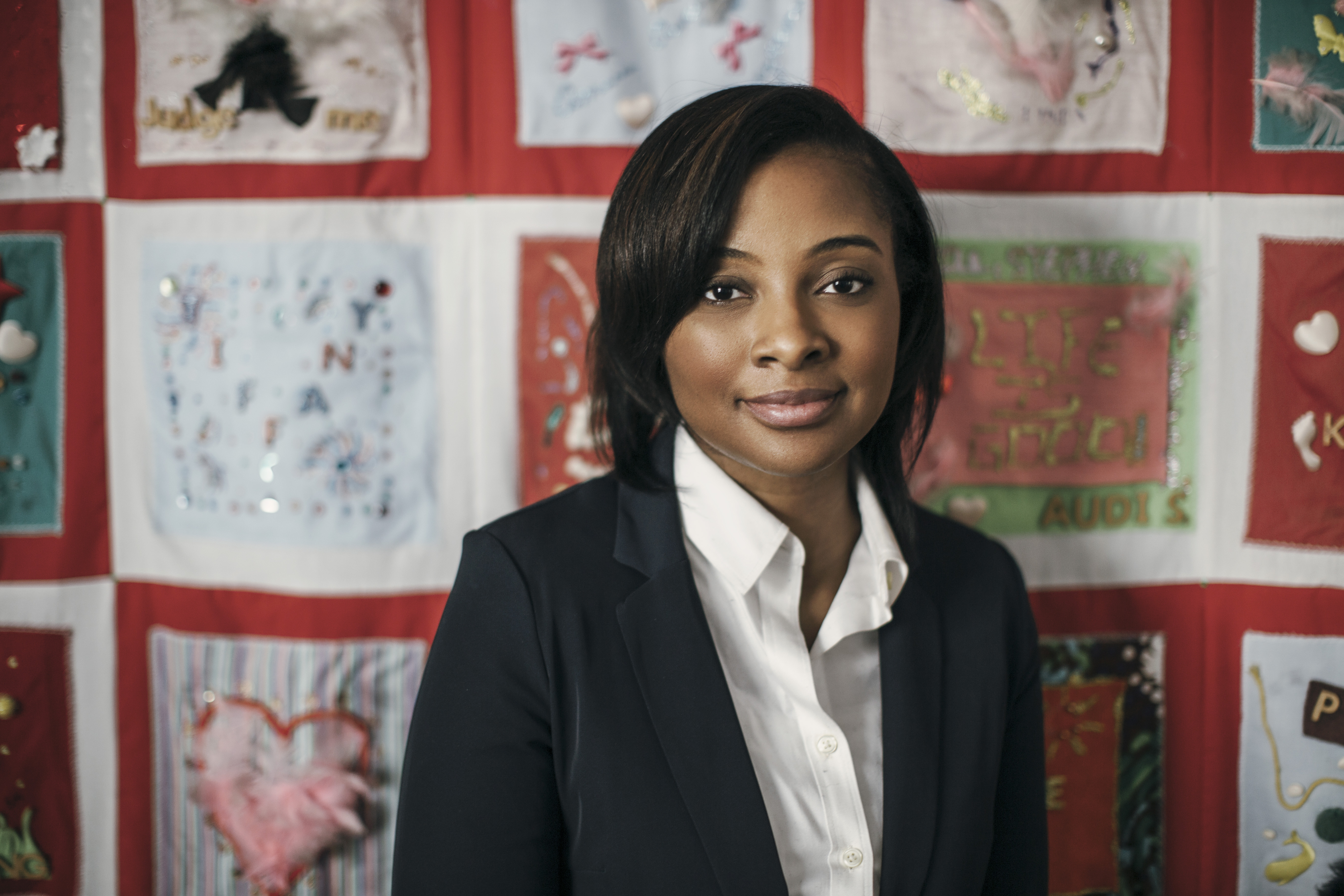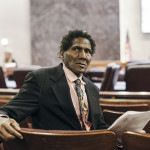Interview by Steve Bogira
Photos by Jeff Marini
Most of the kids we see have been exposed to chronic, complex trauma. It’s not just one thing. Sexual abuse, physical abuse, domestic violence, neglect, violence in the neighborhood—it’s an array of things that make them feel unsafe.
Many of them have been removed from their parents, which is traumatic in itself. They’re put into the home of someone they don’t know. There often are other kids in that home, so they have to adjust to that as well, and to a new school. All these things can retraumatize the kid. And some of the foster parents have their own history of trauma.
The kids often regress developmentally where they’re showing infantile behavior—bed-wetting, thumb-sucking. They become hypervigilant. Some kids clam up, isolate themselves. They blame themselves for what they’ve been exposed to—“Maybe I shouldn’t have told on mommy or daddy, because then I would still be with my family”—even though one of the parents hurt the child. Some of our kids are just numb. They check out, disassociate. They become very reactive—they explode at every little thing.

We work with the child, but we also work with the adult in their life—their mom, grandma, uncle, auntie, foster parents, whoever. We’re teaching them skills they don’t usually learn in this neighborhood. What they learn in this neighborhood are survival skills—that they should do something to someone before the other person does something to them. We have kids killing kids because they don’t know better. They’ve seen their cousins and their parents reacting violently. They don’t understand that there are alternatives.
Sometimes we use puppets or dolls, and the trauma comes out in the play. Dad is yelling at the child, and the child is hitting the mommy. We talk about what the child and the mommy are feeling. I’ll ask the kid, “If somebody hits us, what are some of the things we can do besides hit them back?” If I’m playing the part of the mom, I’ll say, “I don’t like it that you hit me.” The kid learns from it. We’re giving them the tools to function in school and at home so that the distressing events they’ve experienced don’t become their story.
“When I hear about crimes on the news, I wonder about the perpetrator: What was his childhood like?”
I’m working with a mother and her child—she was three when we started and is four and a half now. They were referred to us after there was a big episode of domestic violence where the mom got hurt and needed medical attention and the police came. The child was having trouble sleeping, and was bed-wetting, and she was always angry, getting in fights in school. Mostly she was angry with her mom. She had this hero complex of her dad—she felt he was this awesome guy in her world, even though he was the perpetrator. She felt it wasn’t his fault, it was mommy’s, and she was angry at mom because now she couldn’t see her dad as much as she wanted to. Sometimes kids mimic the perpetrator, verbally and even physically. They’ll hit, and they’ll say things to mom that they’ve heard the abuser say to her. Of course for the mom, those are reminders of the trauma, and so now the mom isn’t seeing her three-year-old, she’s seeing the abuse they’re getting from the child, and she’s going to react out of proportion to how she should.
It’s been a lot of work, because mom had her own trauma history as a child, so she was always very reactive. Mom was always fussing, and the little one would have temper tantrums in the lobby. We’d have conflicts in our therapy sessions where mom would get mad at me and walk out. But I’ve been able to help the mom realize what her triggers are—what are the things her kid does that really irk her. She says, “Oooh, the way she looks at me.” I’ll say, “All right, what’s going on in your body when that happens—are you tensing up? How does your gut feel?” And then help her to be able to calm herself down, maybe with deep breathing, or just walking away for a bit. You help them understand the child’s perspective, and you also help the child understand how mom felt. Even when the child is three or four, they can get it. But if you don’t talk about things, they’re never addressed.

Now the mom can express how she feels, and we have great sessions. When the child does something that irks her, she will talk to her in a calm tone. She’s firm and yet loving. You think, “That’s how it’s supposed to be.” Their bond has really tightened. They’re happy and holding hands as they leave. It lights up my heart when I see that.
At the beginning, it can be overwhelming. You’re like, “What can I do with all these problems?” When you see success, it encourages you to keep at it.
We’re not sure what the outcome of the state budget crisis will be, but until they tell us otherwise, we’re going to see clients as usual. It’s stressful for staff, not knowing how long they’re going to be able to work with clients they feel a responsibility for.
If a kid doesn’t form a healthy connection with at least one person, he’s going to have a hard life as he gets older. When I hear about crimes on the news, I wonder about the perpetrator: What was his childhood like? What were the events that shaped him? I always think of him as a little one.
I don’t know why we as a society don’t talk more about early-childhood relationships. We’re always focused on outcomes rather than on how problems got started. We just see now. But if you think about the beginnings, it helps you understand, and to think, “What are the programs we can put in place so we can prevent this from happening?” v


